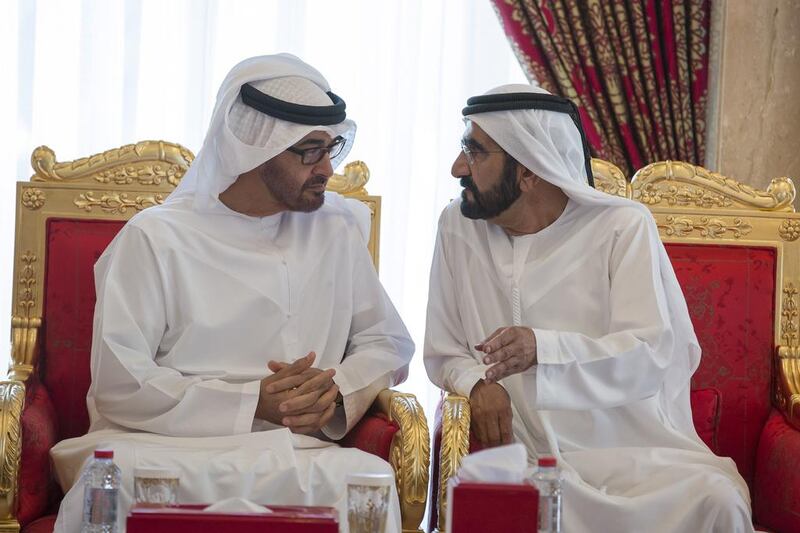Less than a month into the new year, doomsayers predicting the arrival of a new global economic crisis are having a whale of a time. Concerns about China's economy and a slump in the Chinese stock market have affected markets elsewhere, with – to cite one example – billions of pounds being wiped off the value of shares in the London market.
The price of crude oil has fallen to under $30 (Dh110) per barrel. Eighteen months ago, it was over $110. The decline is having a devastating effect on the economies of countries that derive the majority of their income from oil and gas. It's clear that there will be some considerable shocks ahead for the UAE.
Adnoc is looking to cut operating costs by 25 per cent while the likely cancellation or delaying of major projects will inevitably have an impact on those private companies that are dependent on the sector.
Cutbacks in government expenditure are also inevitable, although it may take a while before the full scale of this becomes apparent. Those too will be reflected throughout the private sector.
The expected introduction of a value-added tax in the next couple of years or so it will increase government revenues but will also lead to strains on people's pockets and family budgets.
The strength of the US dollar, to which the dirham is linked, is likely to affect the tourism industry, with the relative decline of the euro and British pound making it more expensive for people in those crucial markets to take holidays here. Airlines and hotels will also feel the pinch, as will the retail sector.
On top of that, it's probable that there will be substantial job losses across many areas of the economy. Although we've been accustomed for decades to an inexorable climb in the country's population, some shrewd observers predict that the trend might be reversed as many expatriates find that it is no longer economically viable to remain.
As most people will recall, the UAE felt the impact of the world economic crisis of 2007-2008. Then, however, the price of oil was much higher than today, ensuring that a high level of revenues still continued to flow in.
Now the situation is markedly different, with prices lower than at any time since 2004 and with most analysts agreeing that a continued slide to $20 per barrel or even lower may well be on the cards. Times are going to get tougher.
It's timely, then, that Sheikh Mohammed bin Rashid, the Vice President and Prime Minister and Ruler of Dubai, has announced that a ministerial retreat is to be held within the next few weeks to look at ways in which the country's economy can be further diversified away from the oil and gas sector.
Only in this way can the long-term objective of a sustainable and balanced economy be achieved.
Announcing the plan, Sheikh Mohammed noted that as of now, oil provides 70 per cent of our GDP.
“Our goal is to have a new equation for our economy where we depend neither on oil nor on market fluctuations,” he said.
That goal is laudable, although it's going to take a lot of imagination, innovation and determination to achieve it.
It's appropriate to recall, though, that the economy has long since moved on from the stage when it was largely dependent on oil and gas and that, therefore, it is insulated to some extent against market fluctuations or a lengthy period of low prices.
For that, we owe thanks to the nation's founding fathers, in particular Sheikh Zayed, as the UAE's first President and Abu Dhabi Ruler, and Sheikh Rashid, first Vice President and Ruler of Dubai. From the earliest days of the state, they continually emphasised the need to diversify away from dependence on a depletable resource.
Not for the first time – and not for the last – the UAE is benefiting from their farsightedness.
Peter Hellyer is a consultant specialising in the UAE’s history and culture





